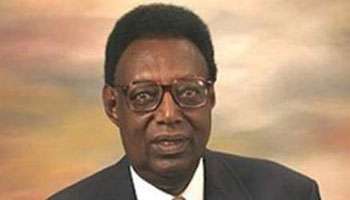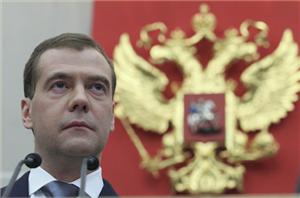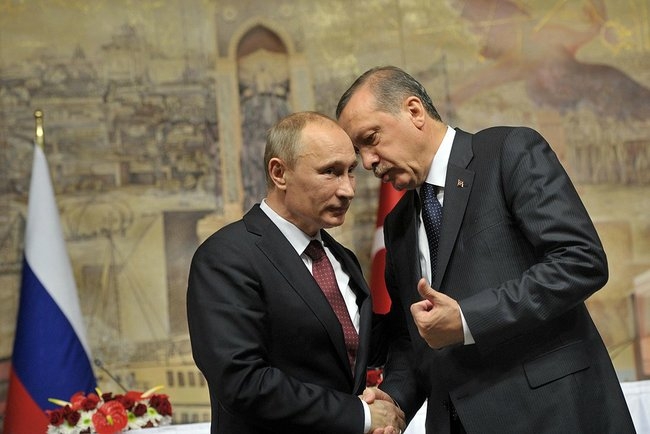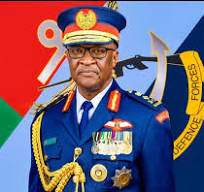Rwanda blocks UN sanctions for M23 rebels
United Nations – Rwanda blocked a joint US-French proposal to impose UN sanctions on two senior commanders in the M23 rebel group in eastern Congo, arguing that the evidence against the men was weak, Rwandan and other UN envoys said on Wednesday.
The latest diplomatic wrangling in New York came as UN helicopters and artillery attacked M23 rebel positions near the city of Goma in eastern Democratic Republic of Congo on Wednesday in support of an offensive by the Congolese armed forces. One UN peacekeeper from Tanzania was killed and three other blue-helmeted troops were wounded.
The United States and France submitted documents to the UN Security Council’s Congo sanctions committee last week explaining why M23’s Colonel Vianney Kazarama, military spokesman for the rebel group, and Erick Mboneza, an M23 commander, should be hit with UN sanctions.
Among other things, those documents, seen by Reuters, cite a July Human Rights Watch report that accused Mboneza of ordering the summary execution of a 24-year-old man he said was a thief.
The documents also refer to a UN Group of Experts report that says Mboneza and an M23 Colonel Kaina, who is already subject to a UN travel ban and asset freeze for his activities in the rebel group, were seen meeting with Rwandan military officers between March and May 2013.
The Group of Experts has repeatedly accused Rwanda of supporting M23, an allegation Kigali vehemently rejects. The cross-border accusations underscore the M23 rebellion’s roots in a complex web of local politics and regional conflicts over ethnicity, land and minerals.
Rwanda’s deputy UN ambassador, Olivier Nduhungirehe, told Reuters that Kigali blocked the proposed blacklisting because it would have undermined regional efforts to bring peace to eastern Congo and Kampala talks between M23 and Congo’s government.
He added that the evidence supporting the US-French proposal was “very poor.”
Diplomats said Rwanda, a temporary council member, was the only one of the 15 member nations that opposed the idea of blacklisting the two men.
The Security Council’s sanctions committee works on the basis of consensus, which means Rwanda was able to singlehandedly block the proposed blacklisting.
In theory, council members could vote on the blacklistings in a Security Council resolution that Rwanda would be unable to block. It was not clear if the council was prepared to do that.
Separately, Rwanda has repeatedly rejected council efforts to issue a public statement condemning M23 attacks on UN peacekeepers last week, UN diplomats said. Rwanda complained that the Western-drafted statement was unbalanced and unfairly targeted the M23 while ignoring attacks by the Congolese army.
Kigali initially criticised the statement for not mentioning shelling onto Rwandan territory last week, though later drafts, all seen by Reuters, did ask for the council condemn the firing into Rwanda.
A new draft of the statement was rejected by Rwanda on Wednesday. A Rwandan delegate said in an email to other Security Council members that it could not support some of the language in the latest draft text.
One council delegation responded to the Rwandan rejection by saying , “It would be the first time when attacks on UN peacekeepers are not condemned by the Security Council. This situation is deeply regrettable,” according to a copy of the email, seen by Reuters.
But Nduhungirehe said negotiations on a statement were continuing. “We are now close to an agreement,” he said.
A 3 000-strong UN intervention brigade, with a tough new mandate to protect civilians and neutralise armed groups in the mineral-rich central African nation, sprang into action last week after it accused the M23 rebels of shelling Goma. The violence has been escalating there in recent days. – Reuters
Rwanda behind killings of Paul Kagame’s critics, claims newspaper Rwanda’s government paid contract killers to assassinate opponents and critics of President Paul A picture taken on January 2, 2014 in Johannesburg shows the entrance of the “Michelangelo”
Rwanda behind killings of Paul Kagame’s critics, claims newspaper Rwanda’s government paid contract killers to assassinate opponents and critics of President Paul A picture taken on January 2, 2014 in Johannesburg shows the entrance of the “Michelangelo” Hotel. Colonel Patrick Karegeya, former head of Rwanda’s external intelligence service, was found after being murdered in the “Michelangelo Towers Suites”, where he has lived in exile for the past several years, the opposition party he belongs to said on January 2.
ALEXANDER JOE ADVERTISEMENT JOHANNESBURG Rwanda’s government paid contract killers to assassinate opponents and critics of President Paul Kagame, according to a Canadian newspaper investigation published on Saturday. The Globe and Mail spoke to exiles based in South Africa and Belgium who claim to have been recruited by Rwanda’s military intelligence to silence critics of the strongman’s regime. The investigation claims to provide the strongest evidence yet that Kigali is behind attacks in South Africa, Britain, Sweden, Belgium, Uganda, Kenya and Mozambique. It cites a recording of a 2011 telephone conversation in which it says Rwanda’s then chief intelligence chief, Colonel Dan Munyuza, discusses the murder of two of Kagame’s former aides with former soldier Major Robert Higiro. “We will show our appreciation if things are beautifully done,” Munyuza is quoted as saying in the recording, which was verified to the newspaper by three independent sources.
“The price is not a problem,” he is quoted as saying, referring to the $1 million being offered for a contract to kill Johannesburg-based ex-army general Faustin Kayumba Nyamwasa and former intelligence chief Patrick Karegeya. Karegeya, who was living in exile in South Africa, was found strangled to death in a luxury Johannesburg hotel on New Year’s Day. (READ: Rwandan ex-spy chief found ‘murdered’ in South Africa ) Nyamwasa has managed to survive at least four assassination attempts, including one that left a bullet lodged in his spine. He was shot and wounded in South Africa in 2010 during an attack that was described by Pretoria as an attack by foreign “security operatives”. Higiro denies having a hand in the attacks and informed the targets before they happened, the newspaper said.
The Rwandan high commission to South Africa declined to arrange an interview with Munyuza when contacted by The Globe and Mail. Human rights groups have long accused the Rwandan government of being behind hits on Kagame’s critics who have sought political asylum abroad. DENIED LINKS But Kigali has denied any links with the killings, despite a warning early this year from Kagame that “anyone who betrays our cause or wishes our people ill will fall victim”. (READ: Kagame: We’re not hunting down defectors ) Kagame is revered as a hero by many both in his country and abroad for his role in ending the Rwandan genocide twenty years ago, which left some 800,000 people dead and the country in ruins.
The Globe and Mail said there was a “common” pattern behind the assassinations, where “Rwandan agents search for vulnerable people within the social circles of their targets and then put pressure on them or offer them money in exchange for their cooperation.” ADVERTISEMENT Most Popular 1 Why Kimemia lost key post POSTED 2 DAYS AGO 2 Man dies while testing plane in Kilifi County POSTED 1 DAY AGO 3 County rep denies Uhuru bhang slur POSTED 2 DAYS AGO 4 Police thwart bid to raid Mandera power station POSTED 1 DAY AGO 5 50 illegal immigrants seized in Kiambu POSTED 1 DAY AGO 6 Click here to Reply or Forward
Rwanda : Sa Majesté Kigeli V, roi sans royaume.

Rwanda : Sa Majesté Kigeli V, roi sans royaume.
Il est le dernier monarque du pays des Mille Collines. En exil depuis plus de cinquante ans, Sa Majesté Kigeli V n’a toujours pas renoncé à revenir un jour sur sa terre natale.
C’est un lotissement typique des banlieues américaines dans la lointaine périphérie de Washington. Les maisons n’y sont pas misérables, mais pas luxueuses non plus. Rien, en tout cas, ne laisse penser que le dernier monarque d’une dynastie multiséculaire habite ici. La petite ville d’Oakton, en Virginie, où réside Kigeli V, l’ancien roi du Rwanda, est l’étape finale d’une longue errance commencée il y a un demi-siècle.
Mais impossible pour nous de pénétrer dans sa demeure. “Le roi n’accorde plus d’audiences aux journalistes jusqu’à nouvel ordre.” L’homme qui nous oppose une fin de non-recevoir, dans ce lobby de l’hôtel Marriott d’une zone commerciale peu fréquentée, en cette moite journée d’août, est son “chancelier”, Boniface Benzinge. Ce colosse, bien portant malgré son âge avancé (80 ans), a laissé au Kenya femme et enfant pour suivre et servir son souverain.
Sur les raisons du refus royal, Benzinge restera évasif. Le roi, un homme de 78 ans à la taille hors norme, a-t-il une santé fragile ? “Non. Il est parfois fatigué, bien sûr, mais il se maintient, répond le chancelier. Il continue de faire de l’exercice physique. C’est qu’il est trop occupé avec sa fondation.”
Il n’empêche, en 2013, Kigeli V s’était longuement confié au journaliste américain Ariel Sabar. Mais l’article, paru dans le Washingtonian Magazine, détaillait sa passion pour les retransmissions de catch à la télévision, ou encore les dialyses qu’il devait subir régulièrement. Il a fortement déplu au monarque. D’où, peut-être, sa méfiance à l’égard de la presse. “Le journaliste n’a pas respecté la vie privée du roi, s’indigne Benzinge. Il a écrit des choses qu’on ne doit pas publier !” L’autorité du mwami a décidément perdu de sa superbe.
En réalité, le souverain n’a jamais véritablement connu d’heure de gloire. Le trône du Rwanda, dont il a hérité en 1959, n’était déjà plus la monarchie absolue au territoire impénétrable telle que décrite par les premiers explorateurs de la région. Pour administrer le pays, les colonisateurs (allemands, puis belges) se sont appuyés sur l’aristocratie tutsie tout en affaiblissant son emprise. Et Kigeli V n’a eu le temps ni de se préparer à la fonction, ni de laisser sa trace dans le pays des Mille Collines.

Persona non grata dans son propre pays
Son demi-frère Mutara III meurt mystérieusement en juillet 1959 à l’âge de 47 ans (il aurait été victime d’un empoisonnement commandité par les Belges, selon de nombreux Rwandais) sans laisser d’héritier. Conformément à la tradition en pareil cas, les Birus, un groupe secret possédant le pouvoir de nommer un nouveau roi, désignent Jean-Baptiste Ndahindurwa (son nom de baptême) pour lui succéder. Fonctionnaire de l’administration belge, celui-ci n’a alors que 23 ans. “Cela a été un choc pour lui, affirme Benzinge. Il ne s’y attendait pas du tout.” Sur certaines vieilles photos en noir et blanc, on peut voir le jeune souverain aux côtés du roi Baudouin de Belgique – et le dépassant de plus d’une tête.
À cette époque, la révolte hutue gronde déjà et Bruxelles, agacé par la prétention de l’aristocratie tutsie à diriger le pays, ne fait rien pour la calmer. Le règne de Kigeli V commençait sous le signe de la précarité.
En janvier 1961, Kigeli décide de se rendre à Léopoldville (aujourd’hui Kinshasa), la capitale du Congo nouvellement indépendant, pour solliciter l’aide du Suédois Dag Hammarskjöld, alors secrétaire général de l’ONU et anticolonialiste viscéral. Les colons belges acceptent de lui donner un passeport. Mais à peine arrivé, il apprend à la radio qu’il est persona non grata dans son propre pays, après à peine plus d’un an de règne.
Kigeli V plaide sa cause en écrivant au Conseil de sécurité de l’ONU. En vain. Le Rwanda est sur le point de devenir indépendant. Il y rentre clandestinement, caché à l’arrière d’une voiture, mais les Belges le placent en résidence surveillée avant de le renvoyer vers la Tanzanie de Julius Nyerere. Il avait foulé sa terre natale pour la dernière fois.
Pendant les trois décennies suivantes, Kigeli errera en Afrique de l’Est, dépendant de la générosité des Tutsis (qui s’exilent en vagues successives, fuyant les pogroms du régime hutu de Grégoire Kayibanda) et des chefs d’État qui veulent bien l’accueillir, comme le Kényan Jomo Kenyatta ou l’Ougandais Idi Amin Dada. Aujourd’hui encore, le roi déchu vit des maigres aides sociales américaines et des dons d’une partie de la diaspora. Il ne peut d’ailleurs pas subvenir aux besoins de son chancelier, qui travaille encore comme vendeur au rayon ameublement de l’enseigne Sears, en attendant la retraite.
Dans les années 1980, Kigeli a toujours l’espoir d’un retour. Surtout quand, en 1986, Kampala est pris par Yoweri Museveni, le chef du Mouvement national de la résistance (MNR), une guérilla marxiste puissamment soutenue par les réfugiés tutsis rwandais. Parmi eux : Paul Kagamé. Mais Kigeli n’ira pas s’installer auprès de ses compatriotes, qui se fixent en Ouganda. “Museveni n’était pas en faveur de la royauté”, explique Benzinge.
Révolutionnaires marxistes contre monarchistes… Ce clivage idéologique divise profondément la diaspora tutsie depuis des décennies. Mais le Front patriotique rwandais (FPR), fondé l’année suivante dans la clandestinité, réussit à former une union sacrée contre le régime de Juvénal Habyarimana, le président hutu au pouvoir à Kigali. Cette rébellion fera le choix de mettre la querelle idéologique de côté pour s’ouvrir au recrutement des monarchistes, encore nombreux.
“Les Rwandais étaient déjà suffisamment divisés comme ça, explique Tito Rutaremara, un des fondateurs du FPR et toujours membre de ses plus hautes instances dirigeantes. À titre personnel, j’ai toujours été républicain. Mais nous disions aux monarchistes : “La forme du gouvernement nous importe peu. Ce qui compte, c’est d’installer la démocratie. Si ensuite vous mobilisez les Rwandais et gagnez un référendum, nous n’aurons aucun problème avec une monarchie, du moment qu’elle est démocratique et progressiste.””
“Fred Rwigema [le premier chef du FPR, tué au front en 1990] et le roi avaient de bonnes relations, affirme de son côté Benzinge. Il est même venu voir Sa Majesté plusieurs fois à Nairobi, où celle-ci avait trouvé refuge.”
Kagamé n’a aucun intérêt à s’embarrasser d’un ancien roi
Le 4 juillet 1994, le FPR, avec Paul Kagamé à sa tête, finit par faire tomber le régime hutu et met fin à l’effroyable génocide des Tutsis. Kigeli V croit l’heure de son retour proche. Une rencontre est organisée deux ans plus tard à Washington avec Kagamé, alors vice-président – mais véritable chef du FPR et du pays. “Kagamé lui a dit qu’il pouvait rentrer au pays comme simple citoyen, soutient Benzinge, qui était présent lors de cet entretien. Le roi voulait que Kagamé demande aux Rwandais s’ils voulaient de lui comme monarque.”
Vainqueur incontesté de la guerre, Kagamé n’a alors aucun intérêt à s’embarrasser d’un ancien roi en prenant le risque de raviver les vieilles divisions de son camp. Ce sera non. Et cela n’a pas changé depuis. “Le président ne veut plus entendre parler de lui”, tranche un proche du président.
Que représentent encore les monarchistes dans le Rwanda d’aujourd’hui ? Difficile de le savoir : ils ne disposent d’aucun parti légal. L’activisme de certains les a d’ailleurs conduits à la prison ou à l’exil. En tout état de cause, dans un pays où la majorité des habitants a moins de 20 ans, rares sont ceux qui ont connu Kigeli. Mais celui-ci affirme qu’il s’entretient régulièrement avec ses partisans, même à l’intérieur du pays… et n’a pas tout à fait renoncé à revenir un jour.
Il consulte, y compris des membres du Congrès national rwandais (RNC), ce mouvement d’opposition fondé par des dissidents du FPR en exil, que le pouvoir soupçonne de vouloir fomenter un coup d’État. “Le roi est le père de tous les Rwandais, justifie Benzinge. Il n’est membre d’aucun parti et ne peut refuser de s’entretenir avec eux, quelle que soit leur appartenance politique.”
Il n’empêche, à son âge, ses chances de revoir un jour le Rwanda paraissent bien minces. Il n’a pas d’enfants et l’idée même de monarchie pourrait bien disparaître avec lui. À moins que les Birus se réunissent de nouveau à sa mort pour lui désigner un successeur. Ces derniers existent-ils encore et, si oui, où se trouvent-ils ? “Je ne le sais pas moi-même, lâche Benzinge. Personne n’a le droit de le savoir.”
Russian President Vladimir Putin has warned that new biting sanctions against his country over its actions in Ukraine will boomerang and hit back at US national interests.

Russian President Vladimir Putin has warned that new biting sanctions against his country over its actions in Ukraine will boomerang and hit back at US national interests.
The US and European Union dramatically strengthened sanctions on Moscow over Ukraine on Wednesday, with Washington for the first time directly targeting Russia’s banking, military and energy sectors.

“Without any doubt in this case [sanctions] are driving Russian-US relations towards a dead end, [and] are inflicting very serious damage on them,” the state news agency ITAR TASS quoted Putin as saying while on a visit to Brasilia.
“And I am convinced that this will harm the national long-term interests of the American state, the American people,” Putin told reporters on Thursday.
The latest measures against Russia deepened the most serious standoff between Moscow and the West since the end of the Cold War, as fighting between the Kiev government forces and pro-Russian separatists threatened to escalate into all-out civil war.
Russian Imperialism Meets Illusions of Ottoman Grandeur

Earlier in 2015, President Recep Tayyip Erdogan said that he found it difficult to understand what Russia was doing in Syria, since “it does not even border Syria.”
- By that logic, Turkey should not be “doing anything” in the Palestinian territories, Somalia, Egypt, Pakistan, Afghanistan or any of the non-bordering lands into which its neo-Ottoman impulses have pushed it.
In a 2012 speech, Turkish Prime Minister Ahmet Davutoglu, then foreign minister, predicted that Syrian President Bashar al-Assad’s days in power were numbered and that he would depart “within months or weeks.” Almost three and a half years have passed, with Assad still in power, and Davutoglu keeps on making one passionate speech after another about the fate of Syria.
Turkey’s failure to devise a credible policy on Syria has made the country’s leaders nervous. Both Davutoglu and President Recep Tayyip Erdogan have lately resorted to more aggressive, but less convincing, rhetoric on Syria. The new rhetoric features many aspects of a Sunni Islamist thinking blended with illusions of Ottoman grandeur.
On December 22, Davutoglu said, “Syrian soil is not, and will not be, part of Russia’s imperialistic goals.” That was a relief to know! All the same, Davutoglu could have been more direct and honest if he said that: “Syrian soil will not be part of Russia’s imperialistic goals because we want it to be part of Turkey’s pro-Sunni, neo-Ottoman imperialistic goals.”
It is obvious that Davutoglu’s concern is not about a neighboring territory becoming a theater of war before it serves any foreign nation’s imperialistic goals. His concern, rather, is that neighboring soil will become a theater of war and serve a pro-Shiite’s imperialist goals. Hardly surprising.
“What,” Davutoglu asked Russia, “is the basis of your presence in Syria?” The Russians could unconvincingly reply to this unconvincing question: “Fighting terror, in general, and ISIL in particular.”
But then Davutoglu claims that the Russian military hits more “moderates” (read: merely jihadist killers, not to be mixed with jihadist barbarians who behead people and cheerfully release their videos). Translation: more Islamist targets and fewer ISIL targets.
A legitimate question to ask the Turkish prime minister might be: What is the basis of “moderate” Islamists’ presence in Syria — especially when we know that a clear majority of the “moderate” fighters are not even Syrians. According to Turkish police records, they are mainly Chinese Uighurs, several Europeans and even one from Trinidad and Tobago.
Could the basis be the religious bond? Could Prime Minister Davutoglu have politely reminded the Russians that the “moderate” fighters are Muslim whereas Russia is not? But then, one should ask, using Davutoglu’s logic, “What is the basis of the U.S.-led Western coalition’s airstrikes in Syria?” Since when are the Americans, British, Germans and French Muslims?
In Turkish thinking, there is just one difference between non-Muslim Russia’s presence in Syria and non-Muslim allies’ presence: The non-Muslim Russians seriously threaten the advancement of our pro-Sunni sectarian war in the Levant, whereas the non-Muslim allies can be instrumental in favor of it. Hence Turkey’s selective objection to some of the non-Muslim players in Syria.
Earlier in 2015, President Recep Tayyip Erdogan said that he found it difficult to understand what Russia was doing in Syria, since “it does not even border Syria.” By that logic, Turkey should not be “doing anything” in the Palestinian territories, Somalia, Egypt, Pakistan, Afghanistan or any of the non-bordering lands into which its neo-Ottoman impulses have pushed it over the past several years. By the same logic, also, Turkey should be objecting to any allied (non-Muslim) intervention in Syria, or to any Qatari or Saudi (non-bordering) intervention in the Syrian theater.

Turkish President Recep Tayyip Erdogan has said that he found it difficult to understand what Russia was doing in Syria, since “it does not even border Syria.” Pictured: Russian President Vladimir Putin (left) with then Prime Minister Erdogan, meeting in Istanbul on December 3, 2012. (Image source: kremlin.ru) |
In the unrealistic imperial Turkish psyche, only Turkey and the countries that pursue regional ambitions convergent with Turkey’s can have any legitimate right to design or re-design the former Ottoman lands.
Such self-righteous and assertive thinking can hardly comply with international law. The Turks and their imperial ambitions have already been declared unwelcome in Libya, Tunisia, Egypt, Lebanon, Syria and Iraq. Nor would such ambitions be welcomed in any former Ottoman land to Turkey’s west. But if, as Turkey’s Islamists are programmed to believe, “historical and geographical bonds” give a foreign nation the right to design a polity in another nation, what better justification could the Russians have had for their post-imperial designs in Crimea?
When they have a moment of distraction from their wars against Western values, the West, Israel, Jews or infidels, the Sunni and Shiite Islamists in the Middle East fight subtle-looking (but less subtle than they think) and cunning (but less cunning than they think) wars and proxy wars, and accuse each other of pursuing sectarian policies. Turkey’s rulers are no exception.
Burak Bekdil, based in Ankara, is a Turkish columnist for the Hürriyet Daily and a Fellow at the Middle East Forum.






























